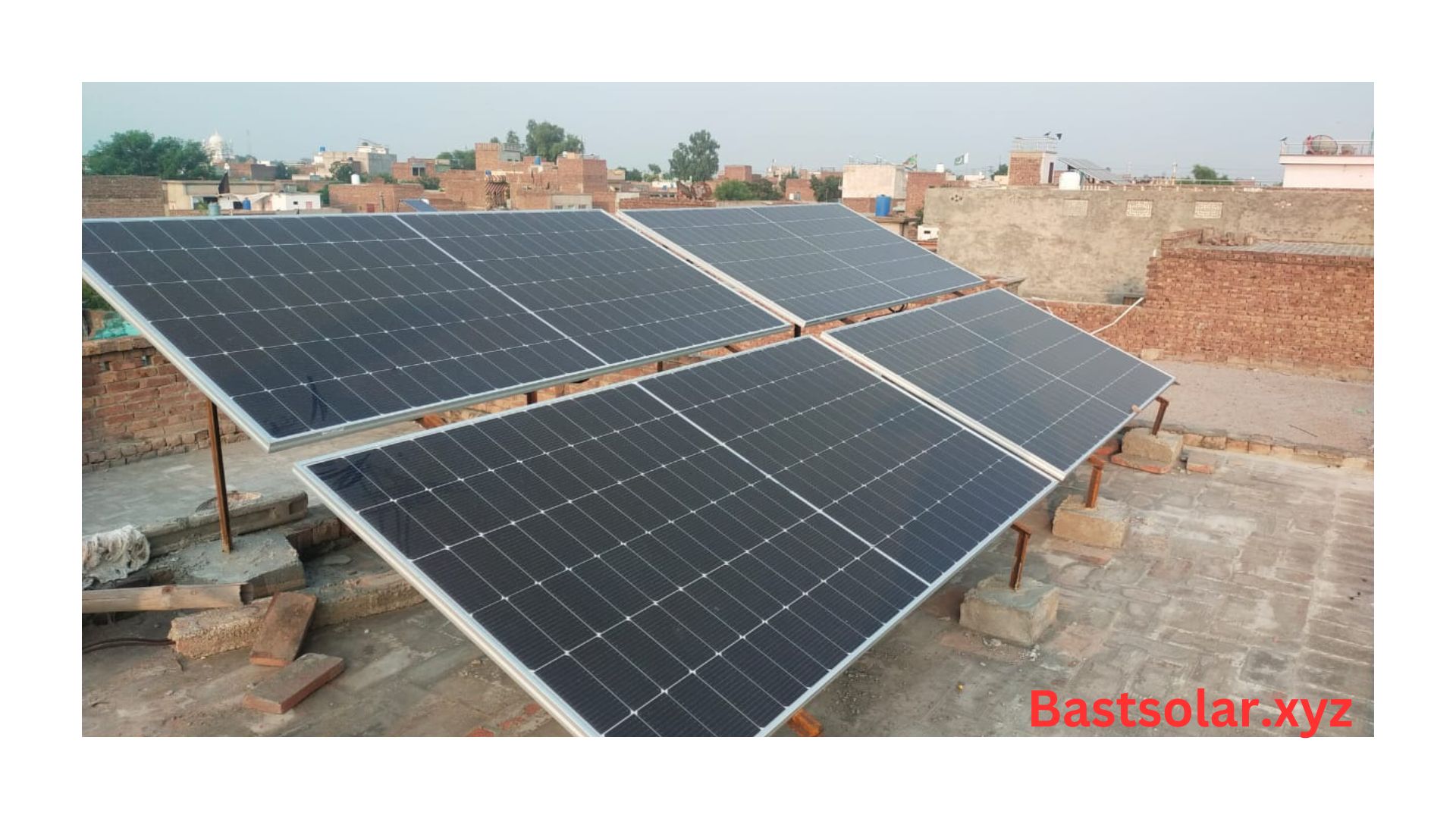In a world increasingly reliant on sustainable energy sources, the sun has emerged as one of the most promising providers of renewable energy. But what exactly is solar energy, and why is it gaining so much attention? Let’s delve into the world of solar power, explore the best solar companies in Pakistan, and answer some common questions about this clean energy source.
What is Solar?
Solar, in its most fundamental sense, refers to anything related to the sun. The term “solar” is derived from the Latin word “solaris,” which simply means “of the sun.” When we talk about solar energy, we are referring to the process of harnessing energy from the sun’s rays and converting it into usable electricity. This form of energy is not only renewable but also abundant, making it an attractive alternative to fossil fuels, which are finite and environmentally harmful.
The sun emits an enormous amount of energy every second—more than enough to power the entire world many times over. This energy can be captured using various technologies, the most common of which are photovoltaic (PV) panels. These panels convert sunlight directly into electricity. Another method is solar thermal, where the sun’s heat is used to generate power.
Which Solar Company is Best in Pakistan?
Pakistan, a country blessed with an abundance of sunshine, has seen rapid growth in the solar energy sector. With the rising cost of electricity and frequent power outages, many people are turning to solar power as a reliable and cost-effective solution. But with so many companies to choose from, which one is the best?
While there are numerous reputable solar companies in Pakistan, a few stand out due to their experience, customer service, and quality of products, Reon Energy, Tesla Solar, and Shams Power are among the top solar companies in the country.
- Reon Energy: Reon Energy is one of the largest solar energy providers in Pakistan. They offer end-to-end solar solutions, including design, installation, and maintenance. Known for its high-quality solar panels and efficient service, Reon has completed numerous large-scale projects Across the country.
- Tesla Solar: Tesla Solar is another leading name in Pakistan’s solar industry. They offer a wide range of solar solutions for residential, commercial, and industrial clients. Their focus on innovation and customer satisfaction has made them a preferred choice for many.
- Shams Power: Shams Power specializes in solar energy solutions tailored to the needs of commercial and industrial clients. They offer a unique model Where they install and maintain, The solar system. while the client only pays for the energy consumed. This model has proven To be very popular among businesses looking to reduce their energy costs without the upfront investment.
What is Solar Energy in Simple Words?
Solar energy is the energy that we get from the sun. It’s a type of renewable energy, which means it won’t run out—unlike fossil fuels such as coal or oil. The sun produces an incredible amount of energy, and we can capture a small portion of this energy using solar panels, Harnessing the Power of the Sun: Understanding Solar Energy.
These panels are Made up of many solar cells, which absorb sunlight and convert it into electricity. This electricity can then be used to power homes, businesses, and even vehicles. One of the biggest advantages of solar energy is that it produces no pollution, making it a clean and environmentally friendly energy source.
Why is it Called Solar?
The term “solar” comes from the Latin word “solaris,” which means “about the sun. It’s called solar energy because it is Energy that comes directly from the sun. The sun has been the center of our solar system for billions of years, providing light, heat, and energy to sustain life on Earth. By harnessing solar energy, we are simply tapping into a resource that has been around for as long as the Earth itself.
Solar energy has been used by humans for centuries, even in ancient times. Early civilizations used the sun’s rays to heat their homes and cook food. Today thanks to advances in technology, we can convert solar energy into electricity, making it a vital component of the global energy mix.
Benefits of Solar Energy
Solar energy offers a wide range of benefits, making it an attractive option for both individuals and businesses:
- Environmentally Friendly: Solar energy produces no greenhouse gases, making it a clean and green energy source. By using solar power, we can reduce our carbon footprint and help combat climate change.
- Cost-Effective: Although the initial investment in solar panels can be high, the long-term savings are significant. Once installed, solar panels require minimal maintenance and can drastically reduce or even eliminate electricity bills, Harnessing the Power of the Sun: Understanding Solar Energy.
- Energy Independence: Solar energy allows individuals and businesses to become more self-reliant. By generating their own electricity, they are less dependent on the grid and less vulnerable to power outages.
- Renewable: Unlike fossil fuels, which are finite and will eventually run out, solar energy is abundant and will be available for billions of years. This makes it a sustainable energy source for the future.
- Low Maintenance: Solar panels have no moving parts, Which means They require very little maintenance. Regular cleaning and occasional inspections are usually all That’s needed to keep them functioning efficiently.

Challenges of Solar Energy
While solar energy has many advantages, there are also some challenges to consider:
- Initial Cost: The upfront cost of installing solar panels can be high, Although this is often offset by long-term savings on energy bills.
- Weather Dependent: Solar panels rely on sunlight to generate electricity, Which means they are less effective in cloudy or rainy weather. However, advances in technology are improving the efficiency of solar panels even in low-light conditions.
- Space Requirements: To generate a significant amount of electricity. Solar panels require a large amount of space. This can be a challenge in densely populated areas where space is limited.
- Energy Storage: Storing solar energy for use at night or during cloudy days can be challenging. While battery technology is improving, it is still relatively expensive and not as efficient as it could be.
FAQs About Solar Eclipses
When is the Solar Eclipse?
A solar eclipse occurs when the moon passes between the Earth and the sun, blocking out all or part of the sun’s light. Solar eclipses happen roughly every 18 months, but they are not always visible from the same location on Earth. The next significant solar eclipse will occur on April 8, 2024, and will be visible across North America.
What Time is the Solar Eclipse in 2024?
The timing of the solar eclipse on April 8, 2024, will vary depending on your location. In general, the eclipse will begin in the late morning to early afternoon and will last for a few hours. The exact time of the maximum eclipse—when the sun is most obscured—will differ depending on where you are. In places like Texas, the maximum eclipse will occur around 1:30 PM local time. while in states further north, it may happen a bit later.
When is the Next Solar Eclipse?
After the April 8, 2024, eclipse, the next major solar eclipse will occur on August 12, 2026. This eclipse will be visible from parts of the Arctic, Greenland, Iceland, Spain, and Portugal. While it won’t be visible in as many populated areas as the 2024 eclipse, it will still be a significant astronomical event.
When Was the Last Solar Eclipse?
The last total solar eclipse visible in the United States occurred on August 21, 2017. Dubbed the “Great American Eclipse,” it was the first total solar eclipse visible from coast to coast in the U.S. since 1918. Millions of people across the country witnessed the event, making it one of the most observed solar eclipses in history.
Conclusion
Solar energy represents a powerful and sustainable way to meet our energy needs. As technology Continues to advance, the efficiency and affordability of solar power will only improve. Whether you’re looking to reduce your carbon footprint, save on energy costs, or simply embrace a more self-reliant lifestyle, solar energy offers a compelling solution. With a bit of planning, you can even experience the awe-inspiring beauty of a solar eclipse—a reminder of the sun’s incredible power and its influence on our lives.




















